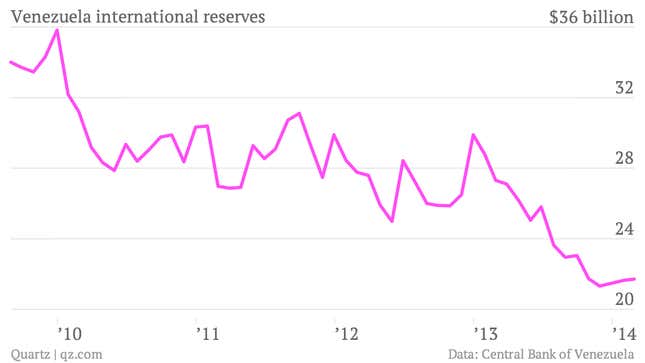Anything goes when a country is running out of money.
The Venezuelan government has received a warning from The International Air Transport Association (link in Spanish) (IATA) which represents over 80% of global air traffic, signaling that a handful of international airlines are considering ending their flights to and from the country. The news comes after Ecuadorian airline TAME, Air Canada, and a number of others suspended ticket sales in the country last month, and suggests those suspensions may have been but the tip of the iceberg. “We very much hope that won’t be the case but each airline is making its own commercial decision,” IATA’s CEO, Tony Tyler, told Reuters.
Why the sudden scuffle? Well, foreign airlines have just about had it with Venezuela’s dodgy financial ways. Normally, airlines are paid in non-convertible Venezuelan bolivars, which are then exchanged for US dollars by Venezuela’s central bank. But as of this past October, the government promptly stopped paying out dollars to airlines, because dollars are a precious commodity in Venezuela these days. And that’s making it impossible for airlines to get their money out of the country.
Amidst a financial meltdown, which has led to hyperinflation and rampant basic goods shortages, Venezuela is running out of cash. The country’s international reserves have tumbled from nearly $35 billion in 2009 to just above $20 billion today (for comparison, Colombia has nearly $45 billion, and Brazil has closer to $360 billion).

It’s unclear at what point Venezuela’s government will respond to threats, or even outright service stoppages—TAME, for one, has yet to be reimbursed, and maintains its Venezuela flight suspension. The country currently owes airlines nearly $4 billion, according to Tyler. That number was closer to $3 billion last month; one can only imagine that it will be nearer to $5 billion by next. As the debts continue to pile on, the abandonment will, too.
